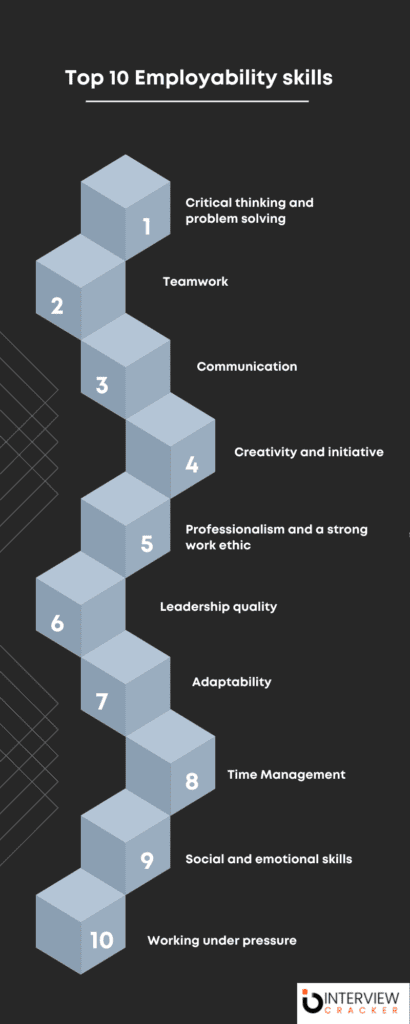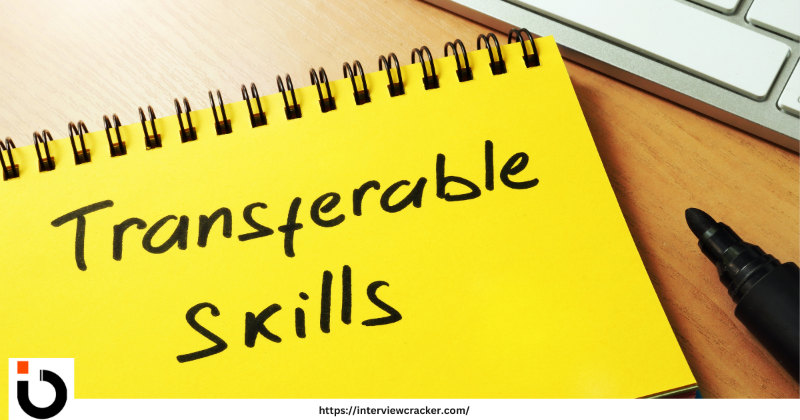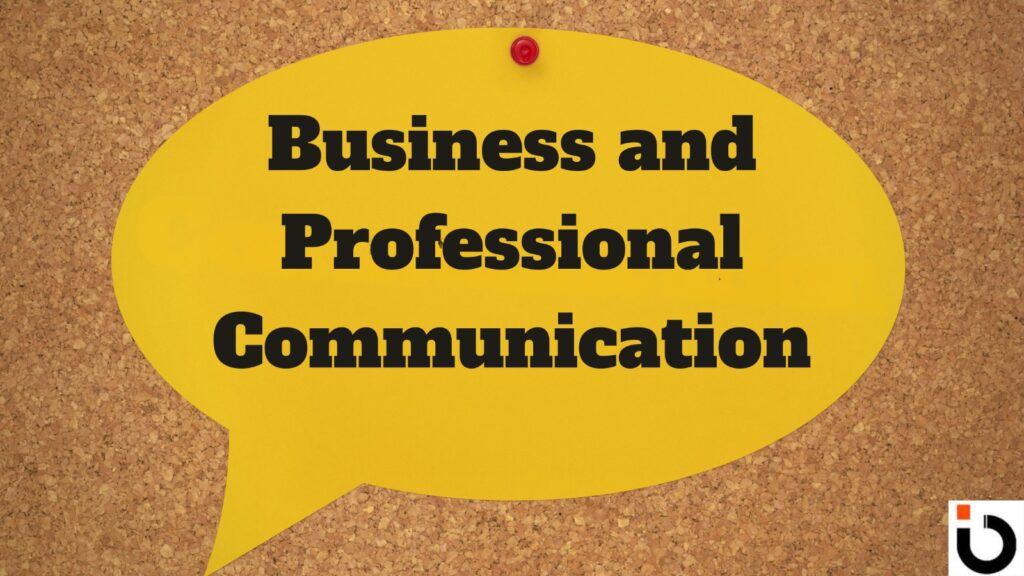What is Employability?
Employability is the ability of an individual to obtain and maintain employment throughout his or her career. Hillage and Pollard define employability as ‘the capability to move self-sufficiently within the labor market to realize potential through sustainable employment. It is a concept that is still debated and has no sure definition or meaning. It is a fairly new concept. Employability and employability skills are the terms that we hear frequently.
This is a definition that is popular and widely accepted by many. According to this definition, employability is not only about whether the individual can get and hold on to the job but also is about the broader set of attributes and skills that will help the employee to be successful in their career.
In other words, employability is:
1. The ability to gain initial employment
2. The ability to maintain employment
3. The ability to obtain new employment if required
The concept of employability continues to be applied within a range of different contexts and to both those in work and those seeking work.
Employability is the qualities and competencies of the individual that are required to meet the changing needs of employers and customers and thereby helping them to realize his or her potential in work.
Others also emphasize that employability is not only the capacity and ability of the individual to hold on to a job but also job market conditions. Now, what is job market conditions, this is where employers compete for the best hire and employees compete for the most satisfying job. Employability is the capability to move into and within the job
markets and to realize potential through sustainable and accessible employment.
What Are Employability Skills?

You must have certain skills, that make you more employable. And you can never have enough skills. The more skills you have the more you are desirable and your prospect of getting a job seems better. With the new concept of upskilling, it is easy to keep increasing your skills and make a shift from the norm. People with a variety of skills or more flexible skills are preferred for alternative security.
What is the Objective of Employability Skills?
The objective of employability skills is to enhance an individual’s readiness for the job market by developing a range of abilities and qualities that make them a more attractive and effective employee. These skills include communication, teamwork, adaptability, problem-solving, and more, aiming to increase employability and job success.

Top 10 Employability Skills
1. Critical thinking and problem-solving
Not only for the job but critical thinking is an important skill to have, Employees need to be able to analyze evidence, question assumptions, test hypotheses, observe, and draw conclusions from any form of data. Critical thinking is not just a skill, but a habit formed to help with problem-solving. Real-life experiences can help you improve and work on your critical thinking skills. They are usually the top priority of any employer to look for when they choose to hire an employee. You need to be capable of handling any situation thrown at you and be able to find a solution for the problems too. Being a quick thinker and problem solver is a handy skill to have.
2. Teamwork
No matter what you do or where you choose to work, teamwork is a must in every spectrum. You need to be able to work with your team and be cordial with them. Be it working on your college assignment or your project. It is important to work together to achieve a common target.
3. Communication
Be clear on what you want to convey. Speak and share your opinion and the way you communicate is also very important. Communication not only involves speaking but also involves active listening to others. Communication does not only include speech and hearing but your body language also goes a long way in describing who you are. Writing is also a form of communication. Someone with a good hold over the language is appreciated, so you need to keep working on improving your communication skills whether it is verbal, non-verbal, or written.
Related Article: Importance of communication skills
4. Creativity and initiative
everyone appreciates a little creativity and your creativity can make you stand out from others. Taking the initiative also shows that you are dedicated and will be a great asset to the firm. Look for things that need to be done and do those without asking and if it is not a part of your skillset go ahead and volunteer to learn how to do it. add a little creative twist to it. Add improvements and these will take you a long way ahead.
5. Professionalism and a strong work ethic
no matter what career you go for after you graduate. Your employer will look for someone who has a strong work ethic and professionalism, it is expected from you. Simple things like being punctual and meeting deadlines. Professional people finish their work on time and do not cut slack. Having a strong work ethic means you will finish your work on time and not procrastinate. If you have a strong work ethic and you are professional your employer will consider you for promotions, a new job, and something else good.
6. Leadership quality
one side working in a team is important. It is also important that you are capable of leading the said team if the time comes. If you are someone who has a strong work ethic, a great communicator, a critical thinker, and a creative individual you are already on your way to becoming a leader. But there is a world of difference between being a leader and a dictator. Work with the team not force them to do all the work on their own.
7. Adaptability
Are you willing to learn or are you flexible? Being adaptable is the most sought-after soft skill. The ability of an individual to adapt to changing conditions and be flexible in your work employment. You will also be able to work effectively in a team and independently when required. A lot of employers seek employees who have adaptability skills to be able to achieve the goals of the organization. Why do you need to be adaptable? That is because the companies as they develop integrate better technologies and embrace new trends. So you also need to embrace those new changes and a person who is stagnant and not adaptable will be a burden.
8. Time Management
Being able to manage time is a great asset to have not only as a factor in employability but an important life skill to have. Time management means working efficiently, and employers in every industry look for staff that can make optimal use of the time available to them on the job. Saving time saves the organization money and increases revenue. Prioritizing work, and scheduling what to do and when to do is important.
9. Social and emotional skills
when you join a company you become a representation of the company. Having social and emotional skills to deal with the responsibility that comes with being a part of the company. It helps an individual to work on things like coping with feelings and setting goals. It also helps with interpersonal skills like working in teams and resolving conflicts. It also comes in handy when you have to work with clients.
10. Working under pressure
Changes and unexpected events, problems or challenges can – and do – usually happen, no matter how well-planned or organized you may be. The ability to respond effectively to pressure and stress is therefore extremely important in any line of work. You must be aware of how you act in such situations and what steps you can take to improve your effectiveness in such situations if necessary. Working under pressure is a skill which you need to learn, you can’t avoid it.

Importance of Employability Skills
Employability skills are important because they enhance an individual’s ability to secure and maintain employment, succeed in the workplace, and adapt to changing job market demands. These skills are valued by employers across various industries and are often considered as important, if not more important, than technical or academic qualifications. Here are some reasons why employability skills are important:
- Enhanced Job Prospects
- Career Advancement
- Adaptability
- Effective Communication
- Problem Solving
- Teamwork
- Leadership Potential
- Customer Focus
- Time Management
- Ethical and Professional Behavior
- Global Awareness
- Entrepreneurship
- Enhanced Job Prospects: Possessing employability skills makes individuals more attractive to employers, increasing their chances of finding suitable job opportunities. These skills are transferable and can be applied to different roles and industries, making individuals more versatile in the job market.
- Career Advancement: Employability skills are essential for career growth. They enable individuals to excel in their current roles and take on additional responsibilities, which can lead to promotions and higher earning potential.
- Adaptability: In today’s fast-paced world, job requirements are constantly evolving due to technological advancements and changes in the business landscape. Employability skills such as adaptability, problem-solving, and continuous learning help individuals stay relevant and resilient in the face of these changes.
- Effective Communication: Good communication skills, both written and verbal, are fundamental in any workplace. They facilitate teamwork, collaboration, and the ability to convey ideas and information clearly to colleagues, clients, and superiors.
- Problem Solving: Employability skills like critical thinking and problem-solving enable individuals to identify issues, develop solutions, and make informed decisions. This is valuable in resolving workplace challenges and improving efficiency.
- Teamwork: Most jobs involve working with others. Teamwork and interpersonal skills are essential for building positive working relationships, resolving conflicts, and contributing to a harmonious work environment.
- Leadership Potential: Employability skills can also include leadership qualities like motivation, initiative, and the ability to inspire and guide others. These skills are important for those aspiring to leadership roles within an organization.
- Customer Focus: For jobs involving customer interaction, skills like empathy, patience, and a customer-oriented approach are vital in ensuring customer satisfaction and loyalty.
- Time Management: Effective time management skills help individuals prioritize tasks, meet deadlines, and achieve productivity, which are critical for success in any job.
- Ethical and Professional Behavior: Employability skills also encompass ethical behavior, professionalism, and integrity. These qualities contribute to a positive work culture and build trust with employers and colleagues.
- Global Awareness: In an increasingly globalized world, cultural awareness and the ability to work with diverse teams and customers are highly valued skills.
- Entrepreneurship: Even for those not pursuing entrepreneurship directly, entrepreneurial skills like innovation, creativity, and risk-taking can be valuable in various roles and industries.
In summary, employability skills are essential for personal and professional success. They not only make individuals more marketable but also enable them to adapt to the ever-changing job market, excel in their careers, and contribute positively to their workplaces and communities. Employers highly value these skills when making hiring and promotion decisions, making them a critical component of career development.
Employability Skills for Students
Employability skills, also known as soft skills or transferable skills, are essential for students to succeed in their academic and professional lives. Here are the top 10 employability skills for students:
- Communication Skills: Effective communication is crucial for success in any field. Students should be able to express themselves clearly and listen actively to others.
- Teamwork: Working collaboratively with others is essential in most professions. Students should learn how to contribute to a team, resolve conflicts, and share responsibilities. Related Read: Teamwork & Collaboration
- Problem Solving: The ability to identify and solve problems is highly valued. Encourage students to think critically, analyze situations, and find creative solutions.
- Adaptability: The modern workplace is dynamic and constantly changing. Students should be adaptable and open to learning new skills and technologies.
- Leadership: Leadership skills involve taking initiative, motivating others, and making sound decisions. Even if students don’t have formal leadership roles, they can still develop these skills.
- Time Management: Effective time management helps students meet deadlines and balance their academic and personal lives. Teach them to prioritize tasks and manage their schedules efficiently.
- Critical Thinking: Critical thinking involves evaluating information, making informed judgments, and questioning assumptions. Encourage students to develop this skill through analysis and reflection.
- Creativity: Creativity and innovation are highly valued in today’s job market. Students should be encouraged to think outside the box and generate new ideas.
- Digital Literacy: In the digital age, students must be proficient in using technology and navigating online platforms. They should also be aware of digital etiquette and security.
- Emotional Intelligence: Emotional intelligence involves understanding and managing one’s emotions and empathizing with others. It’s important for building positive relationships in both personal and professional contexts.
These employability skills are not only valuable in the workplace but also in various aspects of life. Encouraging students to develop these skills will better prepare them for a successful future.
Employability Skills Examples
Additional employability skills examples that employers often seek in candidates they hire:
- Motivation: The drive and enthusiasm to accomplish tasks and meet goals.
- Phone Etiquette: Professional and courteous communication skills over the phone.
- Ability to Learn New Skills: Being open to acquiring and mastering new skills and knowledge as needed.
- Office Equipment: Proficiency in using various office tools and equipment.
- Flexibility: The ability to adapt to changing circumstances and work well in diverse situations.
- Life Skills: Skills related to personal development and well-being, including stress management, resilience, and work-life balance.
- Goal Setting: Setting clear objectives and targets for oneself and/or a team.
- Organization: The ability to efficiently manage tasks, time, and resources.
- Administrative Skills: Competence in tasks related to office administration and management.
- Customer Service: The ability to provide excellent service and support to customers.
- Client Relations: Building and maintaining positive relationships with clients or customers.
- Presentation: Effective communication and presentation skills, both in written and verbal forms.
- Bookkeeping Software: Competence in using software for financial record-keeping and accounting.
- Efficiency: The ability to complete tasks quickly and accurately.
- Multitasking: Managing and prioritizing multiple tasks and responsibilities simultaneously.
- Time Management: Efficiently utilizing time to meet deadlines and achieve goals.
- Sales: Skills related to promoting and selling products or services.
- Prioritizing: Determining the most important tasks and allocating resources accordingly.
- Supervision: The ability to oversee and guide the work of others effectively.
- Troubleshooting: Identifying and solving problems or issues as they arise.
- Information Management: Organizing and managing data and information effectively.
- Initiative: Taking proactive steps to improve processes or solve problems without direct supervision.
- Proactive: Anticipating and addressing issues before they become problems.
- Focus: Concentrating on tasks and goals without distraction.
- Enthusiasm: Demonstrating enthusiasm and a positive attitude towards work and challenges.
- Negotiation: The ability to reach mutually beneficial agreements in various situations.
- Memory: Retaining and recalling information as needed for tasks and responsibilities.
These skills are valuable in a wide range of industries and job roles, and they contribute to a candidate’s overall employability and success in the workplace.
How are Employability Skills Helpful to Secure a Good Job?
Employability skills are essential for securing a good job because they demonstrate to employers that you possess the qualities and abilities necessary to excel in the workplace. These skills include communication, teamwork, problem-solving, adaptability, and more. They make you a valuable and well-rounded candidate, increasing your chances of landing a desirable job.
How do You Demonstrate These Skills to Employers?
Its important to showcase your interviewer your employability skills. You can make your interviewer aware about your employability skills by doing:
Incorporate Skills into Your Resume:
Utilizing appropriate keywords on your resume can effectively communicate to potential employers that you possess the employability skills they are looking for. This strategy can boost the chances of your resume to stand out.
Emphasize Skills in Your Cover Letter:
Include your soft skills, transferable skills, and employability skills in your cover letter.
Give real-life examples in your interview:
During your interview, employers anticipate that you can provide concrete, real-life instances of when you applied one or more of these employment skills.
What is the Difference Between Employment & Employability
Employment refers to the status of being in a job or occupation, where an individual is working for an employer in exchange for compensation, such as a salary or wages. It signifies the current state of having a job.
Employability, on the other hand, is an individual’s skills, qualifications, experience, and attributes that make them desirable and capable of finding and maintaining employment.
In summary, employment is about having a job at a particular point in time, while employability is the overall capacity to secure and thrive in employment opportunities over one’s career.

Conclusion
These are just a few ideal employability skills that make you a desirable candidate. Being dependable, reliable, politeness these qualities are also required of an individual. You can keep developing and learning new things as you work. You never stop learning, The more you learn the more skills you gain, and then, in turn, makes you more employable.
FAQs on Employability
What is Employability?
Employability refers to the combination of skills, qualities, and attributes that make an individual suitable for employment. It encompasses not only technical skills and qualifications but also soft skills, attitudes, and behaviors that enhance one’s ability to secure and maintain employment.
What are Employability Skills?
Employability skills, also known as transferable skills or soft skills, are qualities and abilities that enable individuals to excel in the workplace and adapt to changing job demands. Examples include communication, teamwork, problem-solving, adaptability, time management, and interpersonal skills.
Why are Employability Skills Important?
Employability skills are crucial because they enable individuals to effectively navigate the job market, succeed in their careers, and contribute positively to their workplaces. Employers value candidates who possess a strong combination of technical expertise and soft skills, as these traits enhance productivity, teamwork, and overall organizational effectiveness.
What are some Examples of Employability Skills?
Examples of employability skills include:
- Communication skills: Both verbal and written communication abilities are essential for effective workplace interactions.
- Problem-solving skills: The capacity to identify, analyze, and resolve problems is highly valued in all industries.
- Leadership skills: The ability to motivate, inspire, and influence others to achieve common goals.
- Adaptability: The willingness and ability to embrace change, learn new skills, and thrive in dynamic work environments.
- Time management: Efficiently managing time and prioritizing tasks to meet deadlines and achieve objectives.
- Teamwork: Collaborating effectively with colleagues to accomplish shared objectives and foster a positive work culture.
How Can I Develop Employability Skills?
Employability skills can be developed through various means, including formal education, training programs, practical work experience, volunteering, and self-directed learning initiatives. Seeking feedback, setting goals, and actively seeking opportunities to practice and refine these skills are essential steps in the development process.
What are the most important employability skills
The most important employability skills include:
-
Communication Skills: The ability to convey information clearly and effectively, both verbally and in writing, is crucial in all professional settings.
-
Problem-Solving Skills: The capacity to identify issues, analyze them critically, and develop effective solutions is highly valued by employers.
-
Teamwork: Collaborating effectively with colleagues, contributing ideas, and working towards common goals fosters a positive and productive work environment.
-
Adaptability: Being able to adapt to changes, learn new skills, and thrive in dynamic work environments is essential in today’s rapidly evolving job market.
-
Leadership Skills: Demonstrating leadership qualities such as decision-making, delegation, and inspiring others helps drive projects forward and achieve organizational objectives.
-
Time Management: Efficiently managing time, setting priorities, and meeting deadlines demonstrates reliability and professionalism.
-
Critical Thinking: The ability to analyze information, evaluate alternatives, and make informed decisions is crucial for problem-solving and innovation.
-
Emotional Intelligence: Understanding and managing one’s emotions, as well as being empathetic and socially aware, facilitates effective communication and interpersonal relationships.
-
Resilience: The capacity to bounce back from setbacks, adapt to challenges, and maintain a positive attitude in the face of adversity is key for long-term success.
-
Continuous Learning: Being open to acquiring new knowledge, skills, and experiences demonstrates a commitment to personal and professional growth in a rapidly changing world of work.




